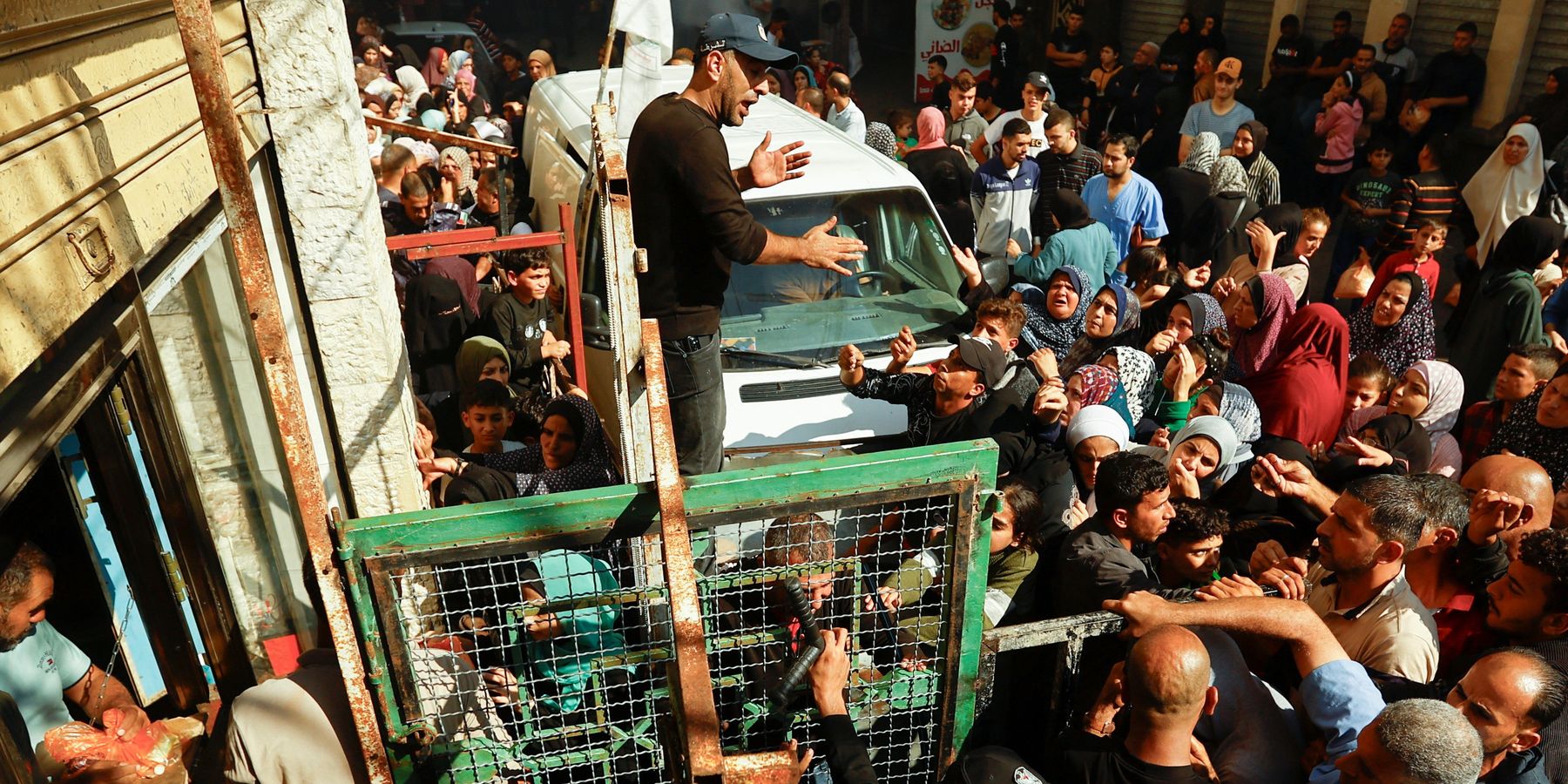The cutoff of food, water, and fuel imposed on Gaza has created dire conditions for the Palestinians there in just the last six weeks. Soon, they could be starved to death.
The trickle of aid that has been allowed in under international pressure is not nearly enough to sustain the civilian population. According to the World Food Program, only 10% of the necessary food is entering the Gaza Strip, and the people there now face an “immediate possibility of starvation.” The WFP also warns that the “food infrastructure in Gaza is no longer functional,” and what little food is available is being sold at inflated prices and much of it cannot be used because people have no means to cook it.
There is a humanitarian catastrophe unfolding before our eyes in Gaza. People are not just starving, they are being starved, and it is happening with the support of our government.
Human Rights Watch and legal scholars say Israel is committing war crimes by waging a “war of starvation” against civilians in Gaza. Insofar as Washington continues to assist Israel’s military campaign and blockade, it is helping to enable it.
The meager amounts of humanitarian aid that the Biden administration boasts about facilitating are a drop in the bucket of what the population needs, and at current rates they cannot stave off large-scale loss of innocent life. The need for a ceasefire and an emergency relief effort is undeniable and Washington’s resistance to it is a potential death sentence for thousands of people.
Starvation has been used as a weapon with disturbing frequency in several conflicts over the last decade from Syria and Yemen to Tigray and South Sudan. Governments typically use economic warfare and physical blockades to achieve their ends. The current blockade of Gaza involves both by effectively shutting down Gaza’s economy and cutting it off from outside supplies.
The forced starvation of a civilian population is a form of collective punishment. Israel has an obligation under the Fourth Geneva Convention “of ensuring the food and medical supplies of the population.” The Israeli government is obviously not fulfilling that obligation, and instead it has been doing the opposite.
It is not surprising that President Biden had nothing serious to say about any of this in his recent op-ed in The Washington Post. The president acknowledged that many innocent Palestinians have been killed in the war, but he said nothing about those responsible for killing them. Biden insists that there must be “no siege or blockade” while both are ongoing. He mentioned no consequences if the Israeli government ignores his list of things that “must” not happen. The Biden administration may have “called for respecting international humanitarian law,” but it is not acting to uphold it and it is not holding violators accountable.
The president has once again rejected the option of a ceasefire: “As long as Hamas clings to its ideology of destruction, a cease-fire is not peace.” This fails to take seriously the devastating consequences that allowing the war to rage on will have for all parties. No one imagines that a ceasefire will resolve the conflict or immediately create conditions for a permanent settlement, but it is imperative for protecting the lives and health of millions of people facing death from starvation, disease, and conflict.
As the political scientist Sarah Parkinson explained in Foreign Affairs, “A cease-fire is the only politically reasonable, security-enhancing, and morally defensible policy to advocate, especially if Washington has any hope of remaining a respected player in the Middle East.” Opposing a ceasefire in this war is a profound strategic and moral error that will cost the United States dearly in the months and years to come.
Biden stresses that the U.S. is aiding Israel in its self-defense, but self-defense does not give a state the unlimited right to do anything it wants. Adil Ahmad Haque wrote an incisive article on self-defense and proportionality in Just Security earlier this month, in which he said this: “Under the law of self-defense, even a legitimate aim must be set aside if it is outweighed by the harmful effects of the force necessary to achieve it. Even if Israel’s right to self-defense is engaged, its current exercise of that right is disproportionate.”
If this war were happening almost anywhere else and if it didn’t involve a U.S. client state, it is very likely that our government would insist on the necessity of a ceasefire and U.S. officials would be repeating that there is no military solution. It is only when the U.S. or a U.S.-backed government is fighting that Washington sees no merit in adhering to international law. Unfortunately, this looks like the U.S. is least interested in stopping the wars over which it has considerable influence, and it is most vocal in demanding ceasefires in wars where it has little or no clout.
If millions of people were facing an immediate threat of starvation in some other conflict, the U.S. would be appealing to the belligerents to lay down their arms and to do everything possible to facilitate the delivery of life-saving aid. That is exactly what our government should be doing now in this war. Brief pauses in the fighting will not be enough to ensure the safe, consistent delivery of aid.
Acting in self-defense doesn’t free a government of its obligations under international law, and self-defense isn’t a catch-all excuse for violating the law. Some political and military goals can’t be reached at an acceptable cost. The harmful effects of waging this war are already too great to justify continuing it, and they will only get worse the longer that this war is allowed to continue.
- What about the Saudi blockade strangling Yemen? ›
- Biden's American bedtime story falls flat ›
- Is Gaza on track for permanent war? ›
- How did Blinken avoid the 'atrocity famine' in Gaza? | Responsible Statecraft ›
















